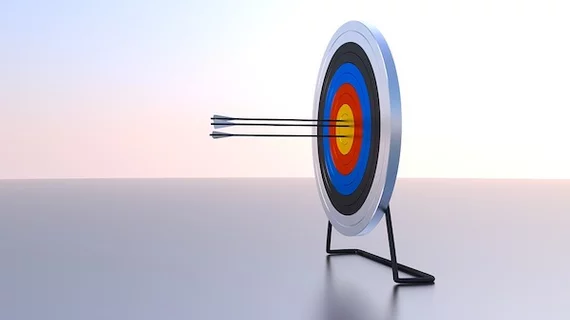Thyroid CT with less contrast material, less radiation produces adequate image quality
When staging preoperative thyroid cancer, ultra-low-dose CT with reduced contrast can produce adequate image quality while also significantly reducing radiation dose compared to standard methods, reported authors of a Dec. 17 study in the American Journal of Roentgenology.
“Because the thyroid gland is radiosensitive and at increased risk of malignancy after exposure to radiation, efforts should be made to use thyroid CT protocols with radiation doses as low as reasonably achievable,” wrote Jeong A. Yeom, with Pusan National University Hospital in Busan, Republic of Korea, and colleagues. “In addition, (contrast material) CM volumes are also of concern because of their adverse effects.”
In the study, Yeom et al. randomly divided 80 patients referred for preoperative thyroid CT into two groups: Group A, which contained 40 patients imaged at 70 Kilovolt peak (kVp) using 60 milliliters (mL) of CM; Group B consisted of 40 patients, using 120 kVp and 100 mL of CM—standard protocol.
Overall, the accuracy of preoperative CT staging, calculated signal-to-noise ratios of different anatomic structures, contrast-to-noise ratios, overall image quality, subjective noise and streak artifacts weren’t “significantly” different between the two groups. Importantly, the estimated effective doses were “significantly” lower in group A.
Yeom and colleagues noted the patient population included in their study was relatively small and most had early-stage thyroid cancer. Had more patients with advanced stages been included, the accuracy of preoperative staging would likely have been different.
“Despite these limitations, our study indicates that ultra-low-dose 70-kVp CT with a low volume of CM enables a meaningful reduction in radiation and provides sufficient image quality and diagnostic accuracy comparable with those of standard 120-kVp CT for preoperative staging of thyroid cancer.”

